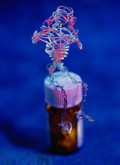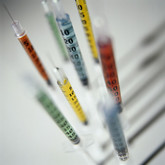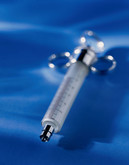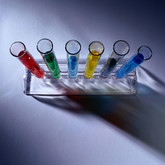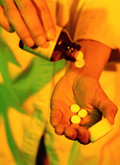Generics
Is the pharmaceutical industry on the verge of as big a change as we have seen?
‘The old order changeth, yielding place to new’ [1]
For many years the Trade Related Intellectual Property Rights (TRIPS) negotiations have been criticised as being overly protective of the rights of large pharmaceutical companies. ‘It is unacceptable to threaten developing countries aiming to provide medicines to their populations, and disregarding international commitments to ensure access to medicines,’ ran a Médecins sans Frontières statement in 2010. ‘The US is using its trade laws to bully developing countries into applying arbitrary pharmaceutical industry requests at the expense of millions of people who depend on generic medicines in developing countries.’
More downs than ups for Ranbaxy
A further problem with Indian generics manufacturer Ranbaxy Laboratories (Ranbaxy) could affect its reputation yet again with US FDA. This time, Ranbaxy fell foul of an Indian state regulator, the Maharashtra FDA (FDA, Maharashtra State, India). The Indian crack-down on Ranbaxy follows in the wake of a consent decree issued by US FDA in January 2012 which tightens scrutiny of Ranbaxy’s quality control and reporting measures.
Apotex gains reprieve after Merck loses ruling―but for how long
Toronto-based pharmaceutical firm Apotex has won a stay of execution for its nasal spray generic product after a US District Court in New Jersey, USA, turned down a patent infringement claim by Merck & Co’s Schering-Plough unit.
Generic Adderall XR approved in the US
Shire announced on 23 June 2012 that it had lost its battle to protect its attention deficit hyperactivity disorder (ADHD) drug Adderall XR (amphetamine, dextroamphetamine mixed salts). FDA approved the abbreviated new drug application (ANDA) from Actavis, a unit of US generics company Watson Pharmaceuticals, for the ADHD drug on 22 June 2012.
China follows the Indian and Thai route to affordable drugs
China announced measures for the Compulsory Licensing for Patent Implementation in a statement on 1 May 2012. The country is saying that it intends to become a generics producer for the domestic and possibly the international market.
Management of drugs shortages
The number, range and duration of drug shortages in the US appear to be, at best, maintaining the levels seen in the recent past. It is now becoming essential for institutions to draft formal policies and procedures to manage them. An article by two hospital pharmacists summarises the information available and outlines the steps needed to make the best of the situation [1].
Mylan moving ahead
Three announcements in three days, in four different countries―Mylan is continuing to make progress in generics.
Attitudes and beliefs are powerful influences on generics use
While generic drugs have the potential to provide significant savings in healthcare costs, and numerous financial incentives are in place, the generics substitution rate in Switzerland was, until recently, lower than expected. A report by Decollogny et al. shows that attitudes and beliefs among patients and physicians have a powerful influence on prescribing practice, suggesting that educational campaigns could potentially provide a significant boost to generics use [1].
Which antiplatelet agent? The debate intensifies
Plavix (clopidogrel) has been a blockbuster drug. The lower cost of generic clopidogrel, available for the first time since 17 May 2012 [1], is intensifying debate among cardiologists over how to make sure patients get optimal benefit from any blood-thinning treatment.
Teva won’t sell generic atorvastatin
Teva has decided not to market its own generic version of Lipitor (atorvastatin), Pfizer’s blockbuster cholesterol-lowering drug that recently came off patent. The decision comes despite the fact that FDA granted tentative approval for Teva’s generic version of atorvastatin at the end of 2011. Teva America’s CEO, Mr William Marth told The Economic Times, ‘we’ve made a really hard choice on not launching atorvastatin.’ He forecasts that the decision not to launch certain products such as atorvastatin and simvastatin will cost the firm about US$150 million.

